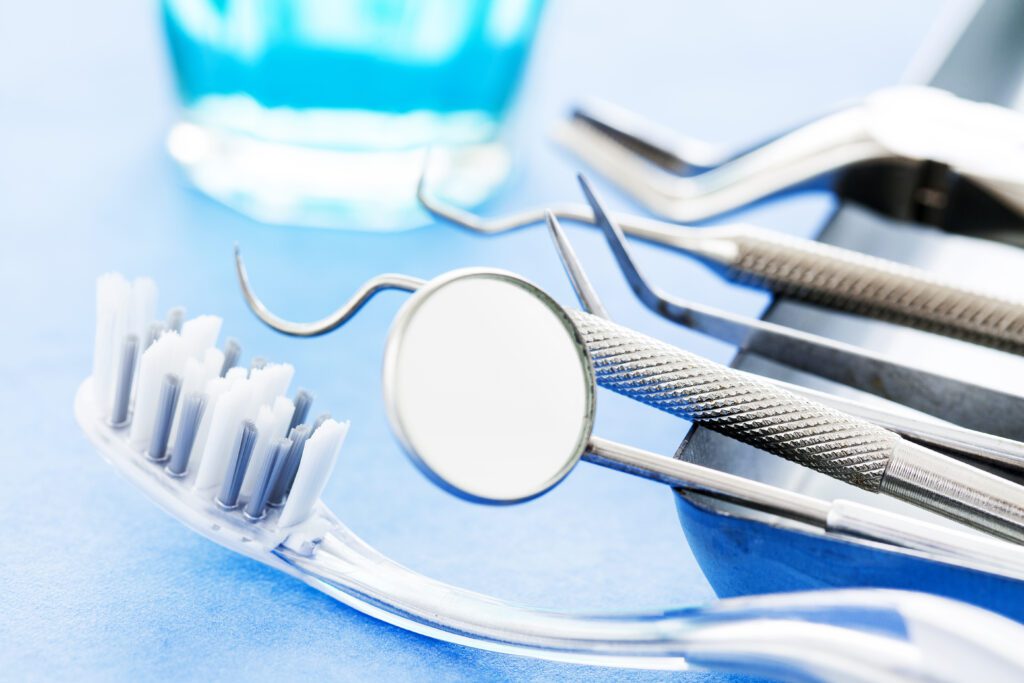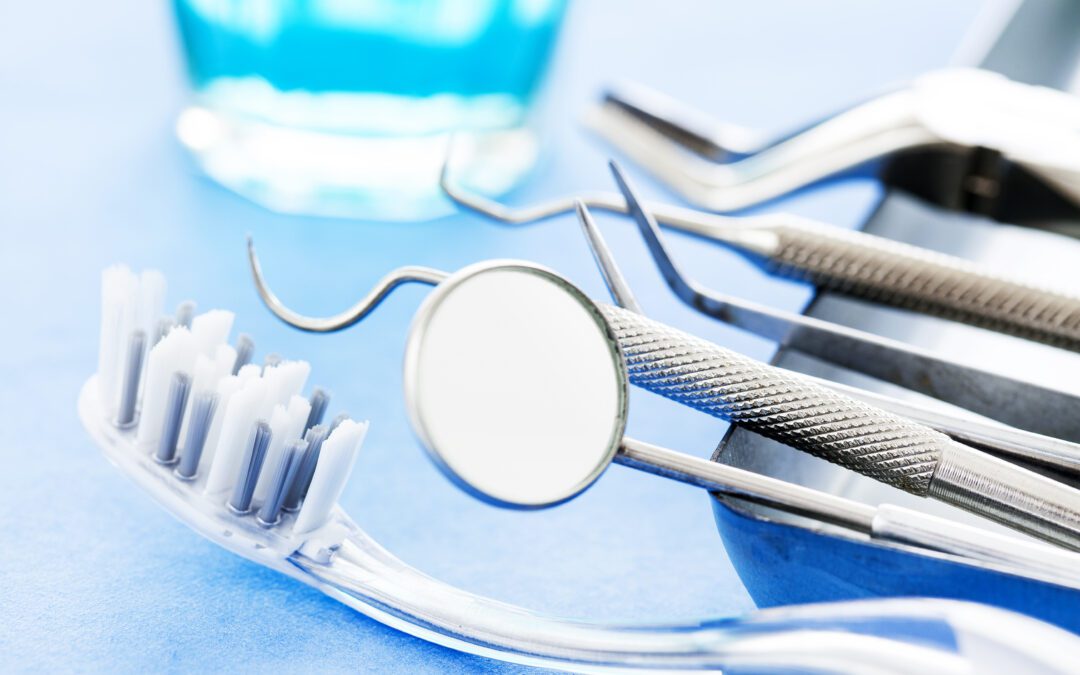Brushing teeth is the most important thing you can do for the health of your teeth. There’s a reason why your dentist is always hounding you about brushing and flossing. This important dental hygiene practice can help to keep you and your mouth healthy in the long run.
But when you head to the store to pick out a toothbrush for yourself, you’re met with a seemingly impossible decision with endless options. Who knew there could be so many types of toothbrushes out there? And the biggest question when it comes to toothbrushes is whether to go electric or manual.Today, we’re going to help you decide which brush is best for you. We’ll consider a few different factors so you can make the right call when it comes to keeping your smile pearly white. Let’s jump right in.

What’s the Difference Between Electric and Manual Toothbrushes?
Before we get into how to decide which toothbrush is right for you, first, let’s talk about what an electric toothbrush does and what a manual one does. Once we have all the information, we can compare and contrast a bit better.
Basic dentistry tells us that cleaning our teeth is important for oral health. Plaque removal prevents gingivitis (gum disease) and tooth decay, so here are the tools that can help you do that.
Manual Toothbrushes
Let’s start with manual toothbrushes. Manual brushes are what you think of when you picture a toothbrush in your mind. It’s typically a plastic stick with a handle and bristles attached to the brush head. They’re great for maintaining oral hygiene if you use them correctly.
Believe it or not, there is more than one kind of manual toothbrush out there. The biggest differences you’ll see are in the bristles: soft, medium, and hard.
Most dentists recommend that you opt for a soft-bristled brush. When you brush your teeth, you want to clean off the debris and plaque that builds up on your teeth throughout the day — soft bristles do this quite well, while hard bristles can be too harsh on your tooth enamel and can even cause gum recession.
There are also differences in the configuration of the bristles on the brush. You’ll find different shapes: rectangular, oval, diamond, and round. Rounder toothbrushes are meant to help maximize the spread of toothpaste around your tooth, and more angular brushes are for deeper cleaning.
Electric Toothbrushes
Electric brushes are a whole different oral health animal from manual toothbrushes. With manual toothbrushes, you have to have a bit of dexterity to get the best possible clean. You need to brush in circles to make sure you get into all the cracks and crevices, which can be difficult, especially around those back molars.
But an electric-powered toothbrush does the hard work for you. They typically run on a rechargeable battery and use some sort of mechanic that helps to make cleaning teeth much easier. You can slowly run your brush over your teeth, and they’ll get clean.
Of course, as with manual brushes, you’ll also see different types of bristles and brush configurations with electric toothbrushes. But some variations are unique to electric toothbrushes.
For example, some electric brushes have a built-in timer that lets you know when you’ve done enough brushing. Other brushes, usually designed for kids, can even play music!
But the biggest difference you’ll see in electric brushes is the mechanism that they use to clean your teeth. There are three types: oscillating, rotary, and sonic.
Oscillating brushes move back and forth to help you get your teeth clean. Rotary brushes have a rotating piece on the end of the brush that uses circular motion to clean the teeth. And finally, there are sonic toothbrushes, which emit high frequencies to quickly vibrate the fluid around your teeth, removing plaque and bacteria while being gentle on the gums.
Which Toothbrush Should I Get?
The right toothbrush for you depends on a lot of different factors. Everybody has different needs and desires, so the right brush for you might not be right for someone else. Here are a few things to consider when selecting your new brush.
Mobility
One of the most significant factors when it comes to toothbrushes is how mobile you are in your fingers, hand, and wrist. Brushing your teeth requires a bit of coordination, but not everybody can move their hand in a way that cleans their teeth properly for good dental health.
Some people might have disabilities that prevent them from brushing well. Others might have limited mobility due to their age. And others still might have experienced an injury that makes it difficult to brush.
One of the biggest benefits of electric toothbrushes is that it can make brushing easier. You shouldn’t have to sacrifice good oral health and dental care if you are having trouble brushing. So if this sounds like you, an electric brush might be the way to go.
Dental Prosthetics
Another big factor to consider when picking out a toothbrush is whether or not you have any oral prosthetics, such as dental implants, dental bridges, partial dentures, or full dentures. If you have these dental prosthetics, your brushing technique and the tools you need to clean your teeth might change a little bit.
If you have a permanent dental prosthetic, such as dental implants, a dental bridge, or permanent dentures, you’re going to need specific tools to clean in and around them. In these cases, electric brushes can do most of the job, but you might need a specific manual brush, like an end-tufted toothbrush, to clean the sites where you have your prosthetics.
If you have a removable dental prosthetic, such as a removable partial denture or a removable full denture, electric brushes can be helpful for cleaning your natural teeth. However, you’ll need a manual brush to clean your prosthetic.
To clean your dentures, you’ll need to take them out and give them a good rinsing. Take a manual denture brush and scrub out any debris with a denture cleaning solution, and then let your denture soak in water overnight to help it maintain its shape.
If you have a prosthetic, electric brushes are great for your natural teeth, but you might also need a manual brush to clean your prosthetic.
Which Toothbrush Gives a Better Clean?
Of course, one of the main factors to consider is which brush gives your teeth a better clean. And when it comes to removing plaque, there’s a clear victor in the electric vs. manual debate. Electric brushes are much better at cleaning your teeth than manual brushes.
Here’s why. For starters, electric brushes produce more strokes per minute than your hand can, so it just does more scrubbing! On top of that, many electric brushes have special features like pressure sensors that can help you make sure you’re brushing with good technique. Some even use Bluetooth to keep track of your brushing habits on your phone.
And finally, an electric brush can give your teeth a consistent, even clean, while manual brushes leave more room for human error.
If you’re looking to get the best possible clean to protect your teeth and gums from harm, electric brushes may be the way to go.
Personal Preference
Finally, there’s the matter of personal preference. Many people don’t much like the process of brushing their teeth. It can feel inconvenient, so some people prefer to make it easier on themselves by getting an electric toothbrush. It makes cleaning your teeth easier and faster than with a manual toothbrush.
On the other hand, some people love the morning and nightly ritual of cleaning their teeth. It’s a nice rhythm that many people enjoy, so for them, a manual brush might be what they prefer.
Of course, there are also different bristle types. Again, soft-bristled are probably the best way to go, but if you prefer hard bristles, you can get those too with your dentist’s approval (just make sure you brush gently, as too much abrasion can hurt your gums).
At the end of the day, you should get the toothbrush you like most, making brushing your teeth more enjoyable. Brushing your teeth twice a day is the most important aspect of oral health, so select the brush that will make you more likely to brush.
The Bottom Line
When it comes to the electric vs. manual toothbrush debate, there are a lot of factors to consider. Electric brushes give your teeth a better clean, but there are lots of reasons to keep a manual toothbrush on hand as well. At the end of the day, you should get the brush that helps you brush more frequently.
For more information about tooth health and to learn more about how you could benefit from dentures, check out Renew.
Sources:
Here’s Why You Should Be Using an Electric Toothbrush | Cleveland Clinic
